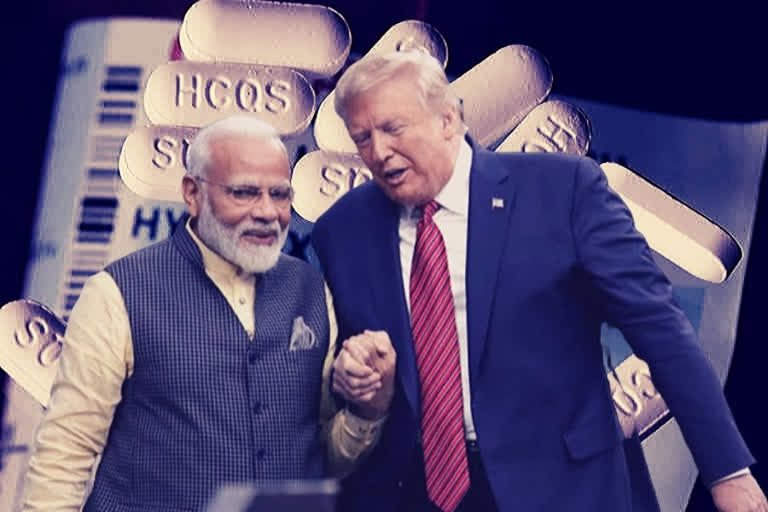New Delhi: There are no free lunches in international diplomacy. India may have seemingly buckled to US pressure to supply hydroxychloroquine (HCQ) to treat the COVID 2019 infected, but will expect a preferential treatment when US, most possibly, churns out the first ever vaccine to treat the global pandemic that has wreaked havoc with vengeance across the world.
And it could be sooner than July.
At this moment, at least 60 different entities including governments and companies across the world are racing against time to bring out the till now elusive cure for the novel coronavirus although it is widely expected that either US or China or their companies will touch the finish line first.
“There are at least 60 COVID-19 vaccine projects that have started up or are in planning. Of this 60, at least five are in advanced stages of development. There is reason to believe that a vaccine may come up in less than three months and most possibly from the US,” Krishna Sarma, managing partner, Corporate Law Group, told ETV Bharat.
The trials involve testing on quite a few parameters. From testing on animals, the drugs are tested on human beings, stability of the vaccine against all known variants of the virus (COVID 2019 is known to have at least four strains), and most importantly, whether the cure has any side-effects.
“Vaccines that do stimulate strong immune responses can also have adverse side-effects or may even make a disease worse. For these reasons, vaccines have to be put through lengthy trials to ensure no dangerous side-effects are revealed,” says Sarma whose firm specializes in bio-pharmaceutical industry practice.
Additionally, India may also have an eye on US aid to fight the dreaded contagion and would like nothing more than to stimulate American largesse. After all, the state of funds at the disposal of the Indian government is not exactly a well-kept secret.
Known for its fight against rampant malaria, India is the world’s biggest producer of the anti-malarial drug HCQ. More than 100 Indian companies are engaged in the process. But it is China that supplies the ingredients (called Active Pharmaceutical Ingredient or API).
On Monday, US President Donald Trump at a White House press briefing obliquely indicated of ‘retaliation’ if India continued to restrict HCQ imports to US.
“If he (PM Modi) doesn't allow it to come out. That would be OK. But of course, there may be retaliation. Why wouldn't there be,” Trump said.
In another instance of his cavalier attitude, the US President had referred to HCQ as a ‘game-changer’. Despite the rising demand for HCQ that has led to squabbling among the nations, there is no proven role of the anti-malarial drug in combating COVID 2019.
Read: India to export hydroxychloroquine on case-by-case basis
Last month, a doctor in Assam lost his life apparently after overdosing on HCQ. The Indian Council of Medical Research (ICMR) had suggested that healthcare workers treating COVID 2019 cases use HCQ.
On March 25, the Indian government had announced a ‘hold’ in the export of HCQ.
In a ‘modification’ of its earlier stand, the external affairs ministry spokesperson Anurag Srivastava announced on Tuesday: “…their (of HCQ and paracetamol) demand position would be continuously monitored. The stock position could allow our companies to meet the export commitments that they had contracted.”
Read: Trump hints at 'retaliation' if India doesn't allow export of Hydroxychloroquine
Calling the earlier stand (March 25 notification) as ‘temporary’, the spokesperson said: “Our first obligation is to ensure that there are adequate stocks of medicines for the requirement of our own people. In order to ensure this, some temporary steps were taken to restrict exports of a number of pharmaceutical products.”
On Tuesday, India also announced that it would supply HCQ to nations “particularly badly affected by the pandemic.” India had more than at least 3,981 active cases of COVID-19 cases, while recording 114 deaths.
The US reported more than 3,66,000 infections and recorded 10,783 deaths. Worldwide, the virus has afflicted more than 13 lakh cases across 184 countries resulting in about 75,000 deaths.




